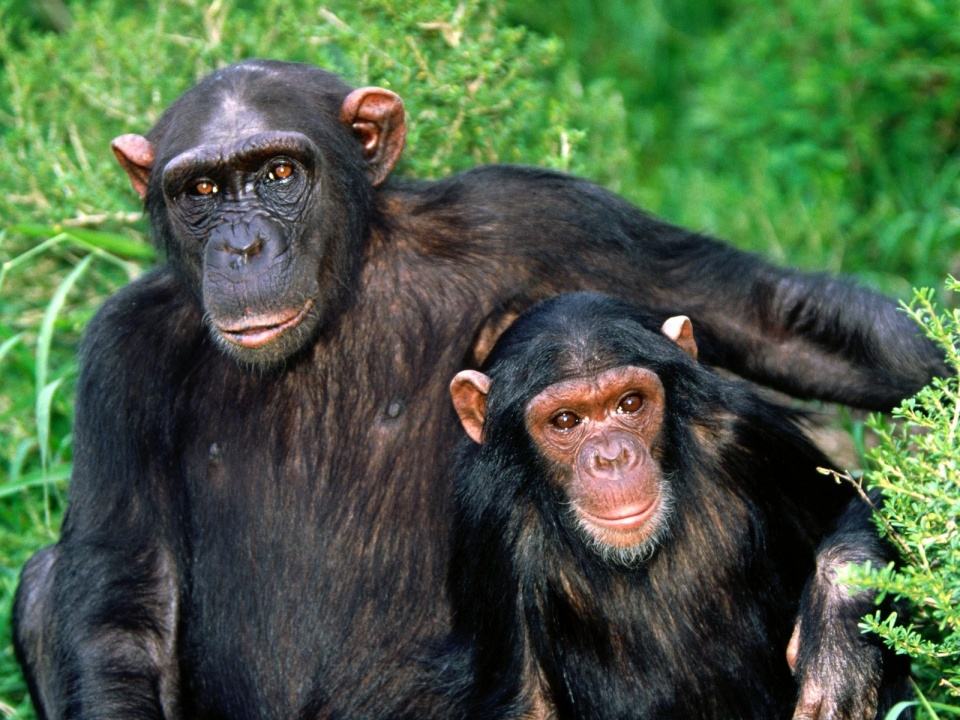Dear A Moment of Science,
親愛的《科學(xué)一刻》:
I know that humans and chimps share something like 98 percent of our DNA.
我知道人類和猩猩有許多相同之處,比如我們的DNA有98%是相同的。
But what does this really mean? At least on the surface, humans and chimps seem very different we live in houses, they live in trees.
但是,這到底意味著什么呢?至少從表面上看,人類和猩猩區(qū)別很大,人類居住在屋舍中,而猩猩卻棲息在樹上。
We use complex language, they use hoots and grunts.
人類使用復(fù)雜的語言交流,而猩猩只能發(fā)出尖叫和咕嚕聲。

So how similar are we?
那么我們有多相似呢?
Well, according to a slew of studies, humans and apes and monkeys are much more alike than they are different.
一系列的研究顯示,人類、類人猿以及猴子之間的相似點(diǎn)遠(yuǎn)遠(yuǎn)多于不同點(diǎn)。
For example, one thing that seems to make us unique is our ability to think ahead and to be aware of what other people may be thinking. But chimps do this, too.
例如,讓人類變得獨(dú)一無二的能力包括提前預(yù)測(cè)并意識(shí)到其他人的想法。不過,猩猩也擁有這種能力。
In zoos they’ve been seen collecting rocks to use as weapons, and hiding them under haystacks to fool their enemies.
在動(dòng)物園里,他們會(huì)收集石塊作為武器,而且將其藏在干草垛下,用來愚弄敵人。
譯文為可可英語翻譯,未經(jīng)授權(quán)請(qǐng)勿轉(zhuǎn)載!











